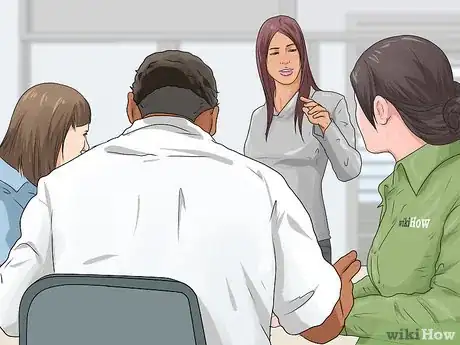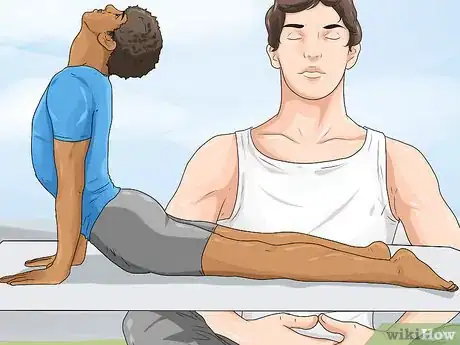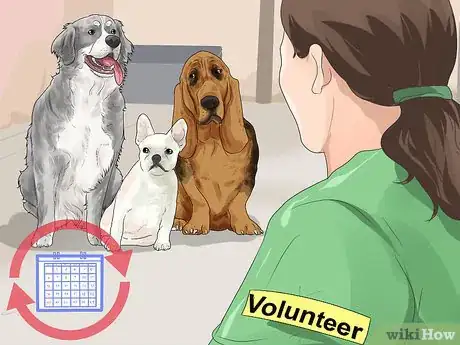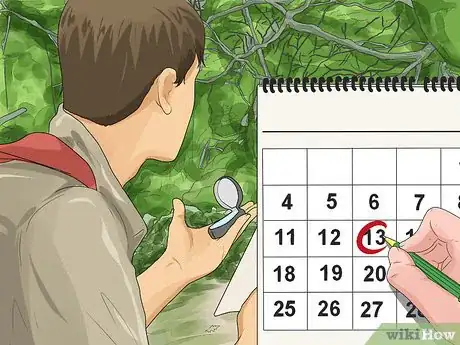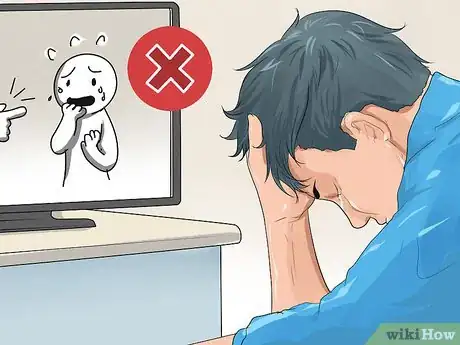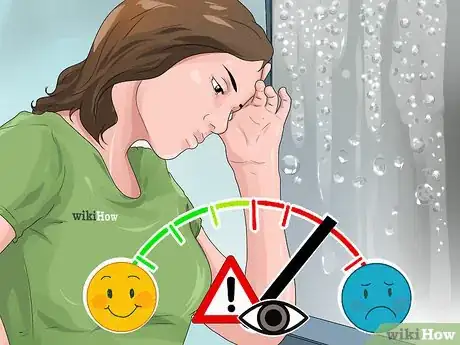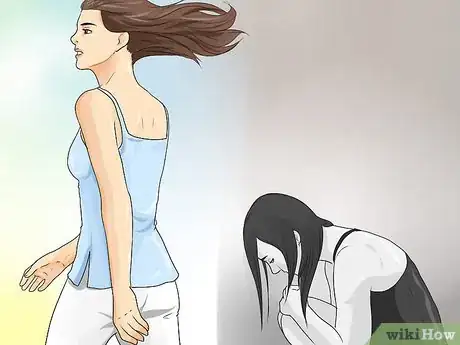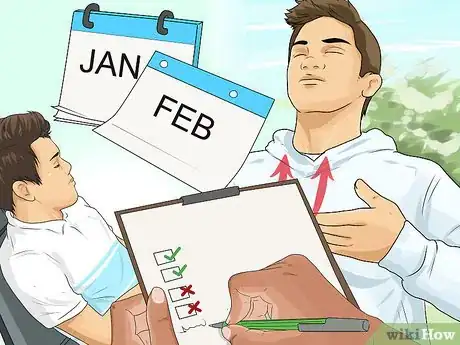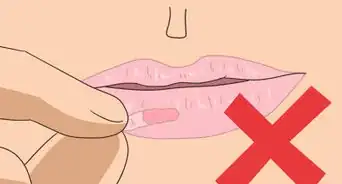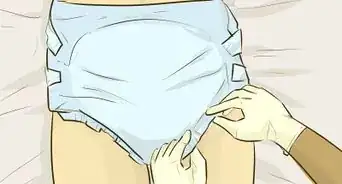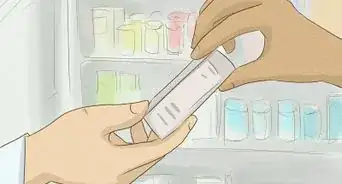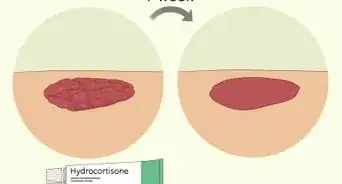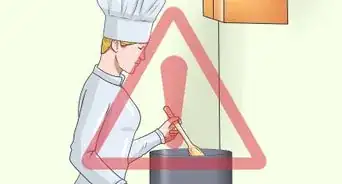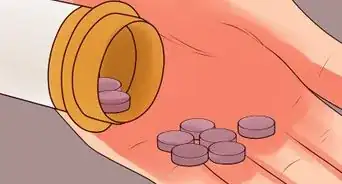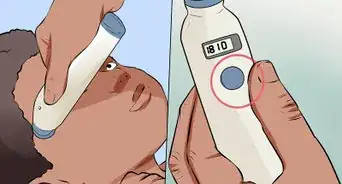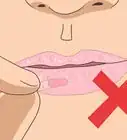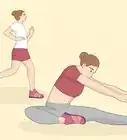This article was co-authored by Lauren Urban, LCSW. Lauren Urban is a licensed psychotherapist in Brooklyn, New York, with over 13 years of therapy experience working with children, families, couples, and individuals. She received her Masters in Social Work from Hunter College in 2006, and specializes in working with the LGBTQIA community and with clients in recovery or considering recovery for drug and alcohol use.
This article has been viewed 15,324 times.
A person can become addicted to many different things. There are support groups for addictions to things such as alcohol, sex, drugs, and even food just to name a few. These addictions can wreak havoc on the life of the addict and the lives of their friends and family. Luckily, many addicts find a treatment plan that helps pull them out of their addiction. When this happens, you should create a support system, balance your life, and manage tempting situations to avoid a relapse into addiction.
Steps
Creating a Support System
-
1Turn to family for support. Your family and friends will want to see you lead a happy and healthy life. They are likely to be willing to help you through your recovery, especially if you show them that you are serious about ending the addiction. Reach out to siblings, parents, aunts and uncles for help. Try to line up several family members so that you will not be relying on just person. This can help you by providing you with more support and help your family by not overburdening one person. Asking family for a place to stay or a ride to appointments is often easier than asking friends or acquaintances.[1]
- Avoid leaning on any family members that have the same addiction as you. This could lead you into a relapse.
- For example, you could call your parents and say, “I have been feeling pretty stressed out lately, and I’m afraid I’m going to relapse. I made an appointment for next week, but it would be great if I could be around support until then. Would it be okay if I come and stay with you for a couple of nights?”
- If a family member is reluctant to help you, try to be willing to listen to their reasons why and find out if there is a way for you to regain their trust.
-
2Find a counselor. Recovery is a long process. The risk of relapse never completely goes away. To keep yourself on the right track, you should see a mental health professional regularly. They can help you learn to cope with stress and cravings, they will listen to your thoughts and feelings, and they can diagnose any underlying mental health issues that may contribute to a relapse.[2]
- Ask your doctor for a recommendation to a mental health professional. Most doctors have a few facilities that they trust and work with often.
- You may have to see a therapist frequently at first, and then over time your visits will likely be reduced as you get healthier. Even if you are not seeing a therapist regularly, it is important to develop a relationship with one in case trouble develops.
-
3Attend support group meetings. Support groups bring together people who have gone through a similar experience. In the case of your addiction, a support group will offer you a chance to share your story with other people who have battled the same addiction. You will also get a chance to hear their stories and encourage them.
- These groups provide bonding and accountability for people who have suffered addictions of a similar nature (e.g. alcoholic’s groups, drug addict’s groups, sex addict’s groups, etc.). This is an important part of your support system since most people will not understand what your addiction is like.
- There are also support groups for friends and family members of addicts, such as ALANON.
- Finding a support group has gotten much easier with the internet. Look for groups in your area that are specific to your addiction. You could also ask your mental health professional or doctor to refer a group to you.
-
4Appoint a guardian. Many support groups offer a sponsor. The sponsor is a recovered addict that you have access to all day every day to help walk you through tough times. If you don’t have a sponsor, have a family member or friend fill the role. Explain to them that you need someone that you can call if you feel like you are slipping back into your addiction.
- Sponsors greatly increase the success of a recovery program.
- You can also authorize someone to place you in a rehabilitation program should you relapse.
Finding Balance in Your Life
-
1Practice mindfulness. Mindfulness is a way of focusing on the present moment. This offers an array of benefits to a recovering addict of any kind, like stopping you from thinking about the past and helping you remain grateful for where you are now. There are many ways to practice mindfulness. You can practice techniques like deep breathing, meditation, and yoga. They may feel unnatural at first, but as you practice you will get better at calming your mind and relaxing your body. Some of the benefits involved include things like:[3]
- Mindfulness reduces stress.
- Mindfulness keeps your focus on the present.
- Mindfulness elevates your mood.
-
2Beware of nostalgia. Looking back on your former behaviors in a favorable light can be dangerous. Instead of referring to your time before recovery as something like ‘The Good Ol’ Days,’ be sure to remember the negative impact that the addiction had on your life. These negative effects are why you went down the road of recovery in the first place.
- Things like damaged relationships, poor finances, and lack of self-esteem are examples of the negative impact of addiction.
- Try writing down all of the negative things that have resulted from your addiction. Then, read over this any time you start feeling nostalgic about your addiction.
-
3Eat well. Staying healthy is imperative to a successful recovery. This doesn’t mean that you can’t have a dessert now and then, but you do want to include plenty of fruits, vegetables, and water in your diet. Your body and mind feel better when you are healthy, which will help you avoid your addictive behaviors.[4]
- Try to avoid foods like:
- Sugary drinks (soda, juice, etc.)
- Processed grains (white bread, white flour, white rice, etc.)
- Foods high in unhealthy fats (fried food, whole fat dairy, etc.)
- Make a point to include foods like:
- Fruits (apples, bananas, citrus, etc)
- Vegetables (carrots, spinach, broccoli, etc.)
- Lean meats (chicken, salmon, etc.)
- Foods high in healthy fats (salmon, avocado, etc.)
- If you are recovering from a food addiction, you will have to be even more careful about the things you choose to eat. In this case, even the occasional dessert could put you at a high risk for relapse.
- Try to avoid foods like:
-
4Exercise regularly. Exercise keeps your body fit and releases endorphins that make you feel good. This will elevate your mood and your self-esteem. Spending time exercising will also keep you busy and reduce the risk of falling back into your old habits out of boredom.[5]
- It’s an added bonus if you can spend time exercising with friends (or make friends exercising).
- Choose an exercise you like. You can do anything from running to weight lifting. You can also do low impact exercises like swimming.
-
5Work a regular schedule. Whether the work is paid or volunteer, it will give you a sense of purpose and commitment. Keeping a regular work schedule also keeps you busy and gets you out into the community where you can make new friends. Look for things that you enjoy doing for work. This way, you will look forward to (or at least not dread) going to work.[6]
- Avoid jobs that force you to confront the object of your addiction (e.g. recovering alcoholics shouldn’t work in a bar).
- Look for jobs that give you a sense of purpose to help you avoid craving your addiction (e.g. take a job that allows you to help people in poverty or others battling addiction).
- Nonprofit and charity organizations often accept volunteers even if they are not hiring staff. This can be a good way to find meaningful activities, and in some cases may lead to a job down the road. Keep in mind that you might have to work in addition to volunteering.
-
6Schedule frequent sober outings. Addictions have a way of seeping into every aspect of life. They dictate your behavior as well as your social circle. Ending an addiction can leave you feeling like you just have to sit home by yourself all the time. The truth is that you can and should go out and do new things. This allows you to find things that you enjoy in place of your old habits, and you can make some new friends.[7]
- If you have made friends in sobriety, schedule frequent outings with them that do not revolve around your addiction. Being with a group of people who have had similar experiences will help to strengthen you and keep you sober.
- There are many activities that you can do that cost little or no money. For example, you could go to a museum or an art gallery. You could also go watch movies or take a hike in nature.
Managing Temptation
-
1Cut ties with other users. Whatever your addiction, associating with other people who currently partake in that behavior is dangerous. This can be difficult if you have been addicted for a long time because most of your friends are likely addicts as well. If you are serious about avoiding a relapse you have to avoid these friends as much as possible.[8]
- It is also a good idea to change your phone number to prevent certain people from contacting you. You may even consider moving out of the area to reduce the chance of running into anyone you want to avoid.
- Not only will hanging out with other addicts tempt you, they may not take your recovery seriously. This could result in you being pressured to ‘have some fun’ and go back to your old ways.
-
2Avoid your triggers. Triggers are things that you associate with the need to use your addiction as a crutch. They can be anything from a particular emotion (like sadness) to a familiar T.V. show. Recognize what you are doing and how you feel when you have an urge to relapse. Write these things down and make a list of your triggers to help yourself avoid and control them.[9]
- You can also discuss your triggers with your mental health professional and/or your doctor.
-
3Be aware of your stress level. Stress is a major contributor to addiction and relapse. Managing your stress level from day to day with things like mindfulness and exercise is imperative to successfully avoiding a relapse. You should also have a plan for coping with major life events. These major events can introduce a tremendous amount of stress in a relatively short time, so it is important to call your sponsor or a trusted friend or family member right away if one of these events occurs. Some examples are:[10]
- A change in marital status
- A loss or death
- A change in finances or employment
- A holiday or other family function
-
4Rely on planning, not willpower. Your willpower largely dependent on your mood and state of mind at any given time. The best way to avoid a relapse is to plan to stay away from places where you used to use, people that you used with, or scenarios that make you want to turn to your addiction again. While you might make it out of one or two situations, if you continue to put yourself in vulnerable positions, you are likely to relapse. Some examples of things you can plan to do to avoid bad situations are:[11]
- Take a different route to and from work.
- Avoid places you used to hang out.
- Have a backup plan ready in case you run into an old friend that is still addicted. For example, you could cut the conversation short by saying that you are late to pick up your mother for a doctor’s appointment.
- Practice how you might respond to offers for substances. You can do this by role playing and rehearsing your answers with your sponsor or a trusted friend or family member.
-
5Gain control over any slips. There is a difference between slipping a time or two and having a full relapse into addiction. The main difference depends on how quickly you regain control. Forgive yourself for any mistakes that you make and get back to your recovery plan as soon as possible.[12]
- It is important to remember that recovery is a long process and a small mistake does not mean that you have failed. A small mistake is also not an excuse to go on a binge.
-
6Stay motivated for the long haul. Many people relax once they have conquered their addiction for a period of time. This is a common way to fall back into addiction. To avoid relapse, you need to continue with your treatment plan. The plan can change and adapt over time, but if you take for granted that you’ve beaten the addiction, you can fall prey to it again.[13]
- For example, you might not need to see a counselor every week after a year of treatment, but that doesn’t mean that you should stop practicing mindfulness and exercising.
Expert Q&A
-
QuestionWhere do you get help for addiction?
 Lauren Urban, LCSWLauren Urban is a licensed psychotherapist in Brooklyn, New York, with over 13 years of therapy experience working with children, families, couples, and individuals. She received her Masters in Social Work from Hunter College in 2006, and specializes in working with the LGBTQIA community and with clients in recovery or considering recovery for drug and alcohol use.
Lauren Urban, LCSWLauren Urban is a licensed psychotherapist in Brooklyn, New York, with over 13 years of therapy experience working with children, families, couples, and individuals. She received her Masters in Social Work from Hunter College in 2006, and specializes in working with the LGBTQIA community and with clients in recovery or considering recovery for drug and alcohol use.
Licensed Psychotherapist Try to find a 12-step program in your area. A lot of people find a 12-step program really effective and helpful, and they've helped millions of people. They can also help you realize it's not the end of the road if you do relapse, and you just have to get back up and keep trying.
Try to find a 12-step program in your area. A lot of people find a 12-step program really effective and helpful, and they've helped millions of people. They can also help you realize it's not the end of the road if you do relapse, and you just have to get back up and keep trying. -
QuestionHow can I reduce stress in my life to manage an addiction?
 Lauren Urban, LCSWLauren Urban is a licensed psychotherapist in Brooklyn, New York, with over 13 years of therapy experience working with children, families, couples, and individuals. She received her Masters in Social Work from Hunter College in 2006, and specializes in working with the LGBTQIA community and with clients in recovery or considering recovery for drug and alcohol use.
Lauren Urban, LCSWLauren Urban is a licensed psychotherapist in Brooklyn, New York, with over 13 years of therapy experience working with children, families, couples, and individuals. She received her Masters in Social Work from Hunter College in 2006, and specializes in working with the LGBTQIA community and with clients in recovery or considering recovery for drug and alcohol use.
Licensed Psychotherapist Try incorporating physical activity into your day, such as yoga or exercise. This can help clear your mind and prevent some of the stress that might cause you to relapse.
Try incorporating physical activity into your day, such as yoga or exercise. This can help clear your mind and prevent some of the stress that might cause you to relapse.
Warnings
- Anyone can relapse if they fail to plan ahead.⧼thumbs_response⧽
- Addictions can be dangerous to your health and relationships.⧼thumbs_response⧽
References
- ↑ http://www.projectknow.com/research/relapse-prevention/
- ↑ http://www.hypersexualdisorders.com/recovery/10-tips-to-prevent-relapse-after-sexual-addiction-treatment/
- ↑ http://alcoholrehab.com/addiction-articles/mindfulness-meditation-addiction-cravings/
- ↑ http://alcoholrehab.com/addiction-recovery/mindful-eating-in-recovery/
- ↑ http://www.projectknow.com/research/relapse-prevention/
- ↑ http://www.projectknow.com/research/relapse-prevention/
- ↑ http://www.projectknow.com/research/relapse-prevention/
- ↑ https://psychcentral.com/blog/archives/2013/07/18/5-ways-to-avoid-addiction-relapse/
- ↑ http://www.hypersexualdisorders.com/recovery/10-tips-to-prevent-relapse-after-sexual-addiction-treatment/
- ↑ http://www.projectknow.com/research/relapse-prevention/
- ↑ https://psychcentral.com/blog/archives/2013/07/18/5-ways-to-avoid-addiction-relapse/
- ↑ http://alcoholrehab.com/addiction-recovery/the-difference-between-a-slip-and-a-relapse/
- ↑ https://psychcentral.com/blog/archives/2013/07/18/5-ways-to-avoid-addiction-relapse/


